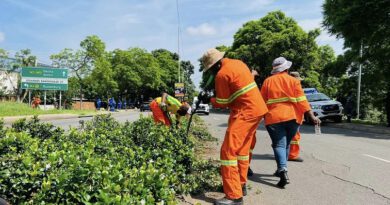Businesses deterred from investing in SA
Insufficient demand, policy uncertainty and the political climate are the most critical things holding back business from investing in the economy, says Jeff Gable, head of research and chief economist at Absa.
Research conducted by Absa in conjunction with the Bureau for Economic Research revealed that for almost five years these issues were the most cited by manufacturers in holding them back from making investments, Gable told a business breakfast hosted by the Ford Motor Company of Southern Africa this week.
“More than 80% of manufacturers are saying this is what keeps me up at night. Business confidence is not a nice-to-have, it’s critical,” he stressed.
Gable added that the last time policy uncertainty and the political climate was the single most important thing holding manufacturers back from making investments was in 1993 and 1994, which was “a pretty uncertain time”.
The factors that are no longer an issue
He said in 2005 the most cited impediment to making investments was the lack of skilled people while earlier it had been high interest rates, neither of which applied today.
Gable said that in the absence of investment in plant and machinery, capacity and people, the economy of tomorrow would be no bigger than that of today.
He said South Africa has always been a tough place to do business, but in the past business operated in an environment where it knew the rules of the game well enough that it could think about investments that made sense.
There was no need for the new government to enact a huge number of pieces of global best practices for the country to do better, but for business to understand the rules a bit more – and business would organise itself around them and move forward, he said.
A need for clarity
“That is understanding better what empowerment legislation is going to look like. We need to understand the solution for Eskom.
“If electricity prices are going to rise by 50% that is uncomfortable. If it’s going to rise by 100% over the next 10 years we need to know that because that is a very different business environment. So it’s trying to find answers to that that will be most important going forward,” he said.
Gable added that GDP growth is struggling to keep up with population growth and that without economic growth, the calls for radical policy changes would be louder.
He said South Africa has grown per person by a total of about 2% over the past 10 to 12 years but shrunk over the last five or six years.
“If, in a very clear way for most South Africans, tomorrow does not look better than today, because quite frankly today is worse than it was five or six years ago, then the calls for change will be much larger. This is not unreasonable on their side,” he said.
Source: moneyweb.co.za


